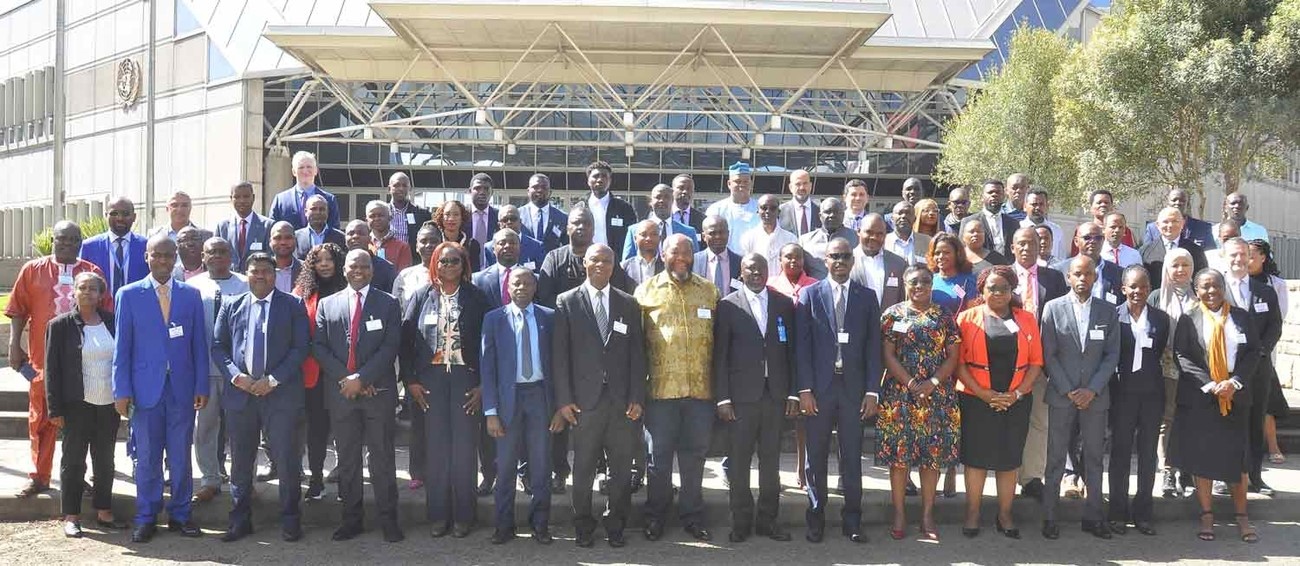THE REGIONAL SEMINAR ON THE AFRICA INFORMATION HIGHWAY
06-10 February 2023, Addis Ababa, Ethiopia

The United Nations Economic Commission for Africa (ECA) hosted the Regional Seminar on the African Information Highway (AIH) initiative from February 6 to 10, 2023, in the ECA conference hall in Addis Ababa. This seminar was held by the African Development Bank (AfDB) in collaboration with the United Nations Economic Commission for Africa (ECA) and the International Monetary Fund (IMF).
The main objective was to update Regional Member Countries (RMCs) and AfDB partners on the achievements and latest developments of the AIH, as well as to discuss how to improve its operational work and make the AIH more inclusive.
More specifically, the key objectives included:
- Familiarize participants with the best approaches to manage their Open Data Platforms (ODPs) and improve the timeliness of disseminated data.
- Inform RMCs of the role that the portal can play in improving the dissemination of data on the SDGs and obtaining better visibility.
- Hold a strategic discussion with Director Generals of national statistics offices (NSOs) regarding creating an AIH steering committee.
- Present the Data Innovation Lab strategy to RMCs and collect their feedback to align the Lab strategy with country needs better.
- Engage in strategic dialogue with Chief Executives on the role of DIL and identify priority areas of intervention and potential initial activities.
This seminar recorded the participation of 46 ODP experts and e-GDDS focal points from 18 countries, 11 Director Generals of NSOs from the pilot countries of the BMGF project and 17 experts from institutions (ADB, ECA, IMF, COMESA).
The seminar's activities took place in plenary and working groups. The plenary work focused on three themes: A) Data Modernization Frameworks, B) Implementation of e-GDDS in Africa and the status of the AIH and C) Challenges of data dissemination.
Three working groups were organized according to the participants' categories: Director Generals, GDDS focal points and ODP experts.
The discussions have highlighted the success of the implementation of the ODP in Africa since 2012 with the support of partners such as the IMF, FAO, UNICEF, and the United Nations Statistics Division. Through the collaboration with the IMF, 37 African countries disseminate their data through their National Summary Data Page (NSDP) on their ODPs under the e-GDDS. After ten years of operation, and in view of its evolving needs, the system is being upgraded for more flexibility and to consider new functionalities such as SDMX.
Following the conclusion of the working sessions, the key recommendations came out of the meeting were:
- Establish a robust mechanism to automate data transmission from production to dissemination and facilitate data uploading into ODP.
- Strengthen the ODP teams in size and involve the production units as contributors.
- Establish national governance of AIH.
- Establish a "Data management system" to ensure the centralization and management of data "store once, use/disseminate several times."
- Train Human Resources in Data Science and Big Data (massive data).
- Provide the NSOs with modern infrastructures dedicated exclusively to processing massive data.
- Establish a legal framework for using data from Big Data by web scraping.
- Increase synergies of action between the AfDB and other international agencies in using ODP for data dissemination to reduce the duplication of efforts that negatively impact countries.
- Develop a mobile version of the ODP (Android, iOS, Windows)
- Improve the cartographic interface of the ODP to allow administrators to load and edit base maps (Shapefiles) and their codes in the ODP server.
- Establish a framework for collaboration and sharing between countries to facilitate the exchange of experiences, tools and knowledge.
- Create a community of ODP users composed of the Bank, IMF, regional and/or sub-regional agencies, and DGs.
- Select pilot countries based on: (i) interest shown by DGs; (ii) availability of good IT infrastructure; (iii) data science/Big Data projects already initiated in the countries.